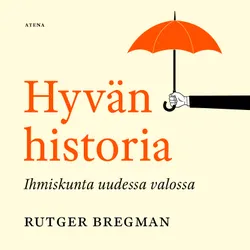In "Elements of Physiophilosophy," Lorenz Oken presents a pioneering exploration of the relationship between biology and philosophical inquiry. Oken's literary style combines lyrical prose with rigorous scientific argumentation, reflecting the intellectual currents of early 19th-century Europe, when thinkers sought to reconcile the emerging natural sciences with philosophical traditions. His work intricately weaves concepts from morphology, embryology, and systematics, positioning biology as a key to unlocking the mysteries of existence and connecting the microcosm of individual organisms to the macrocosm of life itself. Oken, a German naturalist, philosopher, and one of the foremost figures in the field of Naturphilosophie, drew upon the works of Kant, Goethe, and Schelling, situating his own ideas within a broader philosophical discourse. His background in both medicine and natural history influenced his vision of a unified science, wherein philosophical thought and empirical observation coexist harmoniously. "Elements of Physiophilosophy" serves as a culmination of his life's work, challenging the boundaries of both science and philosophy. For scholars, students, and enthusiasts of both philosophy and science, Oken's "Elements of Physiophilosophy" is an essential read. Its ability to provoke thought and inspire a holistic understanding of life makes this book a cornerstone for those seeking to comprehend the intricate connections between biology, philosophy, and the natural world.
Elements of Physiophilosophy
Aloita tämä kirja jo tänään, hintaan 0€
- Kokeilujakson aikana käytössäsi on kaikki sovelluksen kirjat
- Ei sitoumusta, voit perua milloin vain
Kirjailija:
Kieli:
englanti
Muoto:
Enemmän kuin puoli taivasta : Kiinalainen nainen historiassa, yhteiskunnassa ja kulttuurissa
Tiina Airaksinen, Elina Sinkkonen, Minna Valjakka
bookExploring the World of Lucid Dreaming
Stephen LaBerge, Howard Rheingold
audiobookIhme alkaa nyt : Uusia näkökulmia riippuvuuksien taustoihin ja hoitoon
Teemu Kassila, Kalervo Koskela
audiobookBuddhan hipaisu : Harjoituksia hereilläoloon
Monika Luukkonen
audiobookbookVihainen nainen : Hyvä, paha aggressio
Heli Pruuki, Terhi Ketola-Huttunen
audiobookbookHyvän historia : Ihmiskunta uudessa valossa
Rutger Bregman
audiobookbookMina möten med utomjordingar
TLarsson64SE TL64
bookEbba, kuningattaren sisar
Anu Lahtinen
audiobookbookAjattele kuin mentalisti
Jose Ahonen
audiobookbookMestareita tapaamassa
Taavi Kassila
audiobookHäpeän hoito
Katja Myllyviita
audiobookbookKorkeintaan vähän väsynyt
Eeva Kolu
audiobookbook












